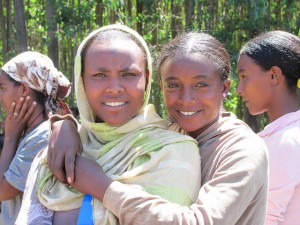Rio+20 Mashup: Population, Youth, Human Rights and Women
May 3rd, 2012 | By admin | Category: Rio+20 Earth SummitBy Suzanne York, HowMany.org, May 3, 2012
It’s getting down to the wire for preparations for Rio+20, the United Nations follow-up to the 1992 Earth Summit in Rio de Janeiro, Brazil.
In the past week or two, there have been several important developments regarding the issues of population growth, youth and reproductive health, human rights, and women’s rights.
First there were the remarks by Secretary-General Ban Ki-moon at the UN Commission on Population and Development, one of ten so-called “functional commissions” of the United Nations Economic and Social Council (the official goal of the commission is to monitor, review and assess follow-up actions from the 1994 Cairo International Conference on Population and Development). The theme of the April session was on adolescents and youth.
Ban Ki-moon, noting the importance of involving the young generation in addressing the world’s pressing problems, pledged to appoint a special advisor for youth, and also claimed that “Empowering young people is a major platform in my action agenda for the coming years.” Amongst other things, he stated that young people “especially need reproductive health care.”
Given that more than half of the world’s population is under age 30, and a quarter is younger than 15, there is a clear need for the UN and governments everywhere to focus on this demographic. It was encouraging to have the secretary-general underscore the importance of youth and the urgency to empower them in terms of sexual and reproductive health.
At the conclusion of the Commission on Population and Development session, a resolution was agreed upon to advance the health, rights and well-being of young people.
The issue of population growth was part of the 1992 Rio Declaration, but has failed to make much of an appearance in recent UN global discussions, and Rio+20 sadly will most likely not be an exception. That said, it was interesting to come across a reference to population in, of all places, the Financial Times. An article on Rio+20 quoted Paul Polman, chief executive of Unilever, who plans to attend, on why other leaders should go: “The world’s population has passed the 7bn mark, and will reach 9bn by 2050. Within two decades, human demand for water will exceed foreseen supply by about 40 percent, while global food production will need to increase by 70 percent to feed a growing population.” At least someone outside of civil society is talking about the increasing population on a finite planet.
Any discussion of population growth should address rights and equity. There is growing concern that human rights and women’s rights, notably mentioned in the 1992 Rio Declaration on Environment and Development, are, in UN-speak, being bracketed (areas of text lacking agreement) in the official UN Rio+20 draft document The Future We Want (also referred to as the zero draft negotiating text, currently under negotiation and to be finalized in Rio). In March civil society organizations were extremely concerned that references to human rights and equity issues were being weakened or even eliminated from the draft text. A few weeks later, UN Human Rights Chief Navi Pillay said the upcoming Rio conference “fails to take sufficient account of human rights perspectives.”
Sascha Gabizon, executive director of Women International for a Common Future, recently said that there is an effort to renege on the original Rio commitments to women and equity, noting that the Vatican is proposing to delete gender equality and all references to sexual and reproductive rights. Gabizon told an interviewer that regarding the draft text, “the women’s major group remains very concerned as numerous references to human rights and women’s rights have been deleted or bracketed.”
Organizations around the world are working to ensure that the final document moves forward and not backwards on global commitments to human rights, women’s rights, population issues, social justice, and equity and gender equality. An international coalition of over 400 non-governmental organizations from 67 countries has come together to challenge efforts to weaken or delete critical text rights and development.
Secretary-General Ban Ki-moon believes that “Rio+20 is a once-in-a-generation opportunity. We must ensure that it is a worthy successor to Rio 1992.” Let’s hope he holds his organization to that promise in Rio.
Suzanne York is a senior writer with the Institute for Population Studies/HowMany.org

